Science Week 2022
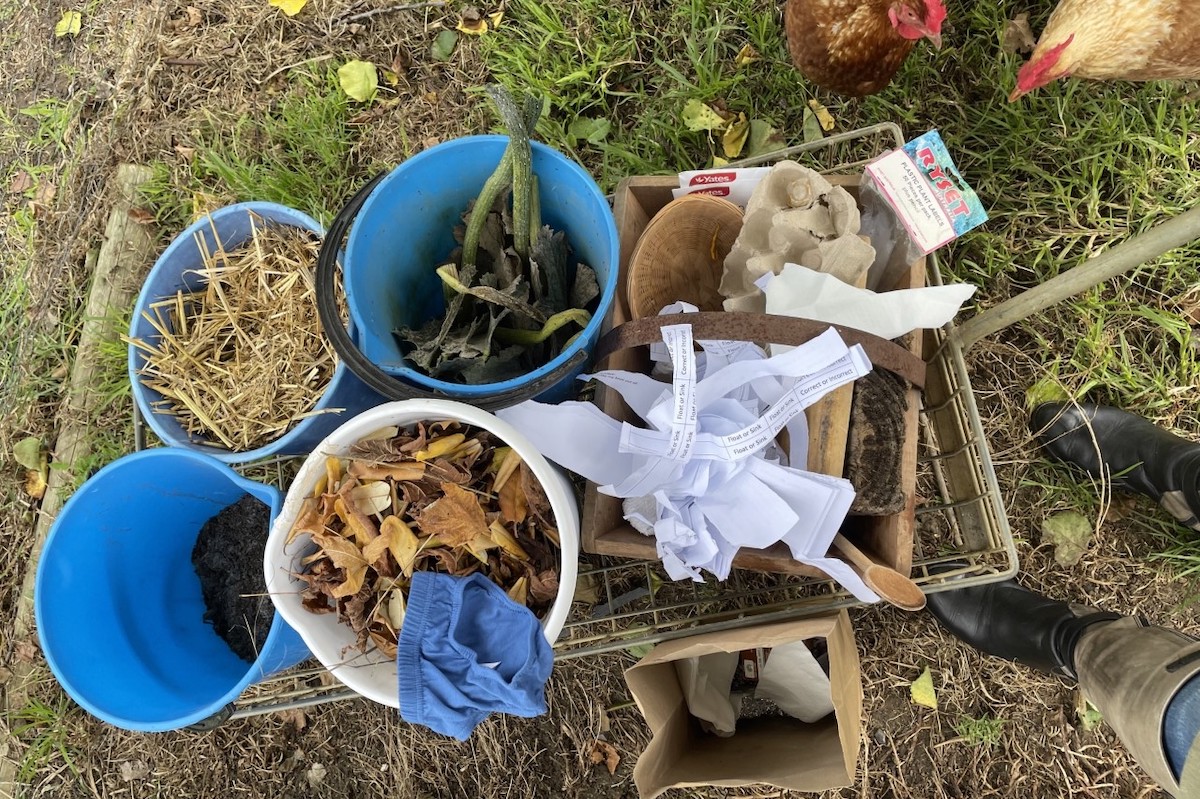
National Science Week is Australia’s annual celebration of science and technology. The Kitchen Garden Program offers plenty of opportunities to explore science in many forms.
With a plethora of science-related activities and resources on the Shared Table, from the science of taste, to climate mapping, germination times and temperatures, or exploring water and erosion, the possibilities are endless.
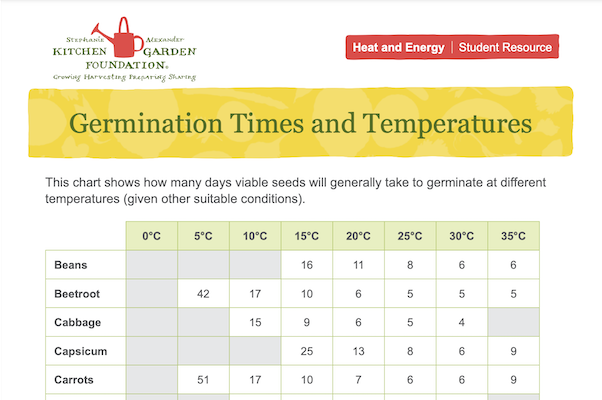
For last year’s Science Week, Faith Lutheran College in Tanunda, SA put their minds to analysis, planning and innovation, with their Harvest Centre becoming a hive of learning as they focused on the theme of ‘different by design’.
Sustainable Outdoor Learning Environments Coordinator, Annabel Biagi, led junior primary classes to work together to consider the different ways fruits could be processed and prepared for consumption. Students developed their culinary skills as they chopped, blended and baked, preparing fruit salad, smoothies, muffins and fruit skewers to offer at the temporary Science Week ‘Harvest Restaurant’.
Students in Years 4 to 6 were set the challenge of: ‘How do you make mince fabulous?’. Presented with a variety of mince types and an abundance of fresh produce from the school’s vegetable gardens, they worked in small groups to design, develop and cook their own dishes. With no recipes to hand, innovation was key. Students got creative with menu concepts inspired by different taste preferences and ideas. They catered to food intolerances with ingredient substitutions, utilising what was in abundance in the school’s garden to create a variety of seasonal dishes including rissoles, sausage rolls, tacos, pasta with homemade sauce, pies and curry rice.
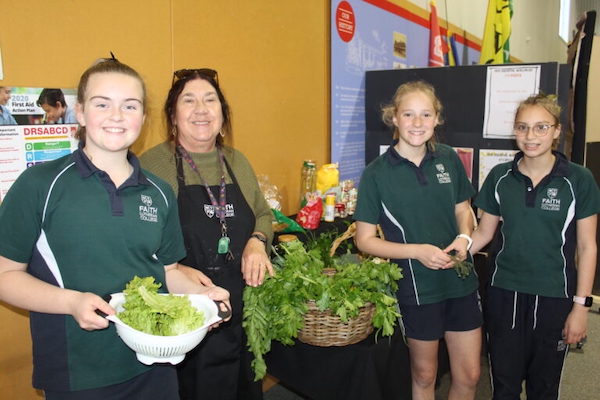
Annabel Biag with students, Faith Lutheran
Head of Junior School, Mrs Michelle Keller said, “It has been wonderful to watch children who may not usually be leaders in the class come to the forefront with their knowledge of food and cooking procedures.”
Faith Lutheran’s Science Week was rounded off with a survey and evaluation of their ‘paddock to plate’ experience. This year, working in with Science Week's theme, 'Glass: more than meets the eye', junior students will be making stained glass cookies, while senior classes will be working with honey.
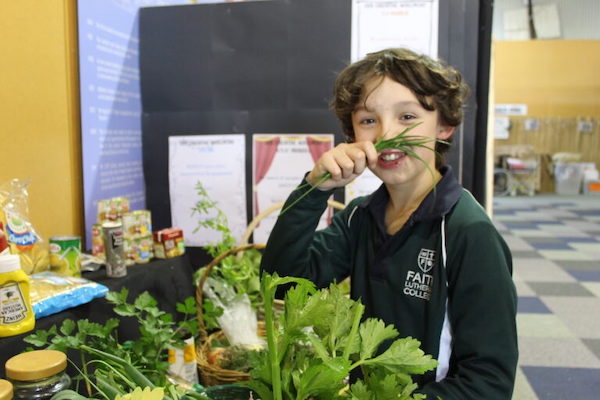
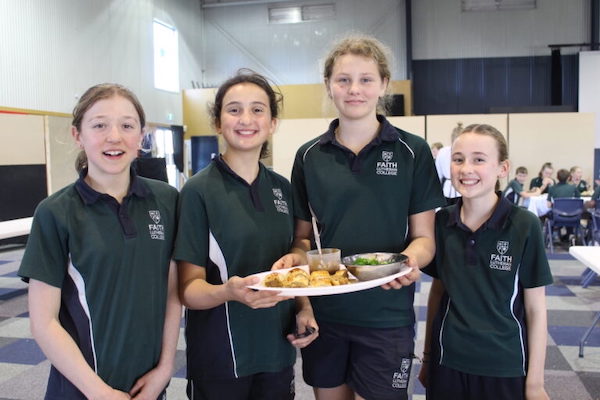
Compost is another kitchen garden classic for scientific investigation. During Compost Week 2022, students at Wonga Park Primary (Vic) discussed the make-up of compost, adding nitrogen and carbon and watching the results. And to really dig into the sustainability of what goes into our soil, “A pair of cotton underpants was buried as an experiment to see how long it would take to decompose”, making for a very memorable class!
At Monash Vale Early Learning Centre, in Clayton, Victoria, science is ever-present out in the garden, with some of our littlest learners loving taking care of the soil. Soil health, compost, worms… there’s a lot to learn, but to get particularly sciencey, an in-depth look at pH is a great activity.
Monash Vale reported in a recent Shared Table post: “During group time, we looked at the pH scale and learned that there are two ends, acid and alkaline, represented by different numbers on the scale. We looked at some of the common items around us like lemon and baking powder and where they sit on the scale. We also discussed some of our experiences and made connections with the taste and the scale”
Visit the Shared Table for our pH soil testing resource.
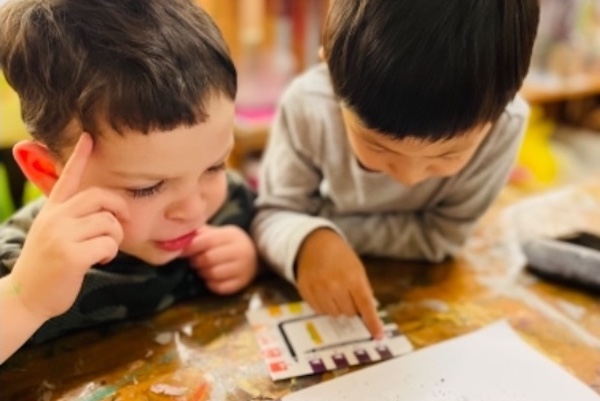
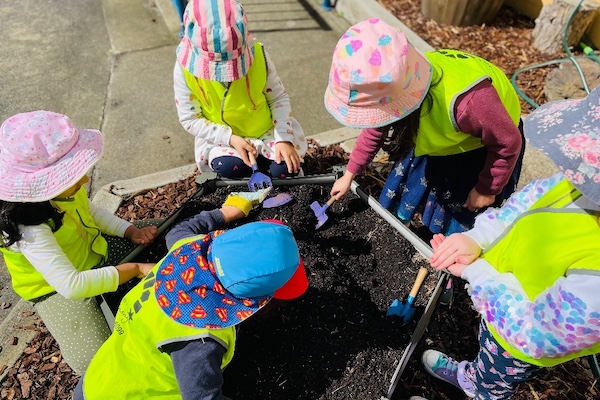
Monash Vale Early Learning Centre pH investigations
Veggie top sprouting is a great all-weather activity for younger students, providing the opportunity to consider sustainability, observe changes in the environment, and learn a basic form of responsibility. It demonstrates that plants are alive and can respond to their environment. 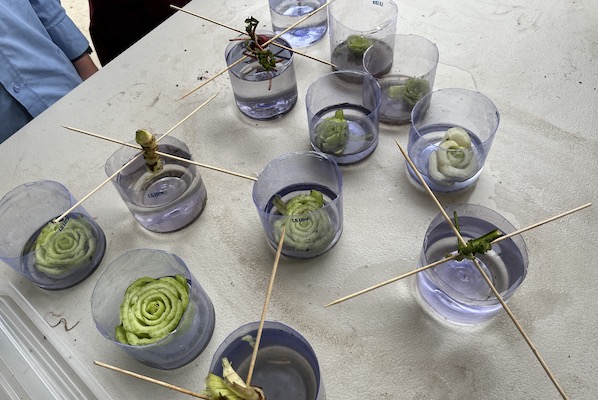
Plant experiments, St Justin’s Parish Primary School
Find out more about National Science week at the official site and tell us about your Science Week activities on the Shared Table or your socials – and tag us @SAKGF.
Visit the Shared Table for a heap of resources and activities: start by looking at all the suggestions on our science skills posters. Set up a window on the world to observe what's happening in your garden, interrogate the science of taste, conduct lessons on heat and energy transfer with our KGP at home: Heat and Energy resource. Or follow these lessons for secondary on identifying and classifying plants (Year 7), exploring plant cells (Year 8), vitamins and minerals (Year 9) and exploring greenhouse conditions (Year 10). Search for 'science' on the resource library to find even more connections for your program.
< Back to Latest News
